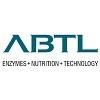Reducing stress susceptibility in poultry with natural heat stable universal antioxidant and adaptogen ‘Herbal C’

Highly bioavailable and sustained activity: The unique array of phyto-ingredients and composition Herbal C is liable for self-replicating, sustained antioxidant activity and higher bioavailability (Chatterjee et al., 2006).
Universal antioxidant: Natural vitamin C acts as universal antioxidant that protects both aqueous & lipid phase of cells whereas synthetic vitamin C is active in aqueous phase only, leaving lipid phase unprotected. The activity guided bio-assay for antioxidant activity of Herbal C powder has shown it to be potentially and significantly higher as compared to synthetic vitamin C (Muruganandam et al, 2002). In addition to its function as an antioxidant, Herbal C is efficacious to regulate many essential metabolic processes, including vitamin E recycling, collagen biosynthesis, and an important role in the functionality of the immune system.



References
1.Altan O, Pabuccuoglu A, Altan A, Konyalioglu S and Bayraktar H (2003). Effect of heat stress on oxidative stress, lipid peroxidation and some stress parameters in broilers. British Poultry Science, 44: 545-550
2.Chang M S H, Ming F H, Wu I J, Tsai Chang (2006). Comparative efficacy of Herbal C and synthetic vitamin C on egg production and egg quality of layers in Taiwan summar. Livestock International. 9 (4): 11-13.
3.Chatterjee S, Das S N, Singh B P, Sharma A and Agrawala S K (2006). Effect of natural Vitamin C supplementation on production and health of commercial broilers. Livestock International. 9 (4): 11-15
4.Farag MR, Alagawany M. (2018). Physiological alterations of poultry to the high environmental temperature. J. Biol. 76:101–106. doi: 10.1016/j.jtherbio.2018.07.012. [PubMed] [CrossRef] [Google Scholar]
5.Ghosal, S, Tripathi V K and Chauhan S (1996). Active constituents of Emblica officinalis: Part I. The chemistry and antioxidative effects of two new hydrolysable tannins, Emblicanin A and B. Indian J. Chem., 35: 941-948.
6.Giang V D and Doan B H (1998). Effects of vitamin C supplementation of a diet for 0-4 week old chicks on the absorption of calcium and phosphorus. Livestock Res. Rural Develop. 10 : 1-4.
7.Kanokporn Poungpong, Eisuke Sumiyoshi and Chaiyapoom Bunchasak, 2019. Effect of gallotannoids on the productive performance and stress index of broiler chickens under stress conditions. International Journal of Poultry Science, 18: 63-68
8.Kim, D O, Lee, KW, Lee HJ, Lee, CY (2002). Vitamin C equivalent antioxidant capacity (VCEAC) of phenolic phytochemicals. Journal of Agricultural and Food Chemistry. 50 (13): 3713-3717.
9.Konca Y, Kirkpinar F, Mert S and Yurtseven S (2009). Effects of dietary ascorbic acid supplementation on growth performance, carcass, bone quality and blood parameters in broilers during natural summer temperature. Asian Journal of Animal and Veterinary Advances, 4: 139-147
10.Lagana C, Ribeiro AML, Kessler AM, Kratz LR and Pinheiro CC (2007). Effect of the supplementation of vitamins and organic minerals on the performance of broilers under heat stress. Revista Barasileira de Ciencia Avicola, 9 (1): 1516-635
11.Lara L, Rostagno M (2013). Impact of heat stress on poultry production. Animals. 2013;3:356–369. doi: 10.3390/ani3020356. [PMC free article] [PubMed] [CrossRef] [Google Scholar]
12.Muruganandam A V, Singh J and Agrawala, S K. (2002) Comparative antioxidant activity of Herbal IH-C against synthetic vitamin C and other products. Phytomedica. 3: 43-47.
13.Nagra S S (2004). Comparative effect of Herbal C and synthetic vitamin C in layers and broilers. Research Report, Department of Livestock Production & Management, Punjab Agricultural University, Ludhiana.
14.Sahin K, Kucuk O, Sahin N and Sari M (2002). Effects of vitamin C and vitamin E on lipid peroxidation status, some serum hormone, metabolite, and mineral concentrations of Japanese quails reared under heat stress (34°C). International Journal for Vitamin and Nutrition Research, 72: 91-100.
15.Sahin K, Sahin N and Yaralioglu S (2002). Effects of vitamin C and vitamin E on lipid peroxidation, blood serum metabolites and mineral concentrations of laying hens reared at high ambient temperature. Biol. Trace Elem. Res.85:35-46.
16.Singh M (2006). The effect of oral administration of Herbal C and synthetic vitamin C on plasma and adrenal gland vitamin C concentration in rats. Report from R&D Laboratory, Indian Herbs.
17.Surai PF (2002). Natural Antioxidants in Avian Nutrition and Reproduction. Nottingham University Press; Nottingham, UK: [Google Scholar]
18.Surai PF, Kochish I, Fisinin V (2017). Antioxidant systems in poultry biology: Nutritional modulation of vitagenes. Eur. J. Poult. Sci. 81:1612–9199. [Google Scholar]
19.Tudu N K (2005). Cytochemical, Biochemical and Biomechanical study on effect of MagaCal and Herbal C on the development of musculoskeletal system in layer growers. MVSc (Vety Anatomy & Histology) Thesis; Orissa University of Agriculture & Technology, Bhubaneswar.
20.Tudu N K, Mishra U K, Mishra S K, Das R K and Mandal A K (2006). Biometrical and Biomechanical study of Femur in “Magacal” and “Herbal C’ supplemented layer growers : A field trial. J.Vet..Anatomy 18: 5-10



















